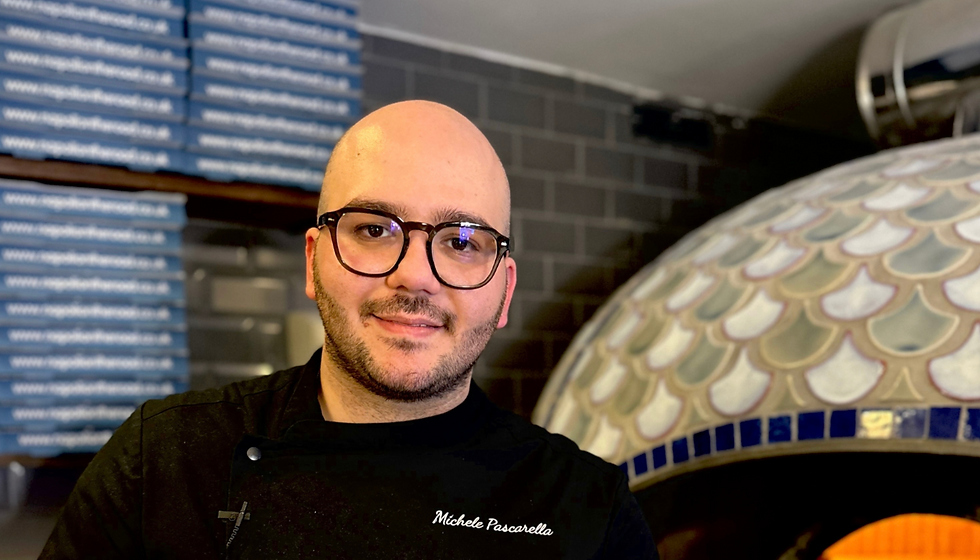The Foremost Aspect To Understand About French Cuisine, As Articulated By Jacques Pépin
- Merlyn Miller
- Jan 26
- 3 min read
This great chef possesses profound knowledge of French cuisine.

Jacques Pépin, a chef, cookbook author, and authority on French cuisine, has been imparting culinary knowledge for decades. At 89 years old, he remains a dynamic presence in the culinary realm, in addition to his artistic pursuits.
Last week, he engaged in a conversation with renowned culinary figure José Andrés for he Spanish chef's podcast, Longer Tables with José Andrés. The pair contemplated various topics, including Pépin's initial years in the United States and his camaraderie with Julia Child. Pépin, a French chef in America, with a distinctive viewpoint regarding the perception of his homeland's cuisine, and he aims to dispel one particular myth.
He underscores to Andrés that the essence of French food is not exclusively located in upscale restaurants and tasting menus. He indicates that “There is often a misconception in America regarding French cuisine as merely extravagant, which is a component, but not the essential aspect.” Pépin says that the establishment of the Michelin ranking system for restaurants contributed to the perception that the finest French cuisine is located in opulent environments.
In 1926, the French tire manufacturer Michelin commenced the allocation of stars to restaurants deemed extraordinary, as part of its travel guide to France—this initiative attempted to incentivize motorists to traverse the country, with renowned restaurants providing an additional motive for road trips. In 1931, five years later, Michelin implemented the three-star system currently in use.
According to the Michelin Guide, "A Michelin Star is conferred upon restaurants that provide exceptional culinary experiences." The criteria for granting stars are numerous, and Michelin-recommended restaurants globally encompass various price ranges; yet, the system is recognized for its tilt towards higher-priced places.
In 1926, the French tire manufacturer Michelin commenced the allocation of stars to restaurants deemed extraordinary, as part of its travel guide to France—this initiative attempted to incentivize motorists to traverse the country, with renowned restaurants providing an additional motive for road trips. In 1931, five years later, Michelin implemented the three-star system currently in use.
According to the Michelin Guide, "A Michelin Star is conferred upon restaurants that provide exceptional culinary experiences." The criteria for granting stars are numerous, and Michelin-recommended restaurants globally encompass various price ranges; yet, the system is recognized for its tilt towards higher-priced places.
For him and several other French individuals, the essence of their food resides in rustic cooking and modest, comforting dishes. The acclaimed chef states, “I have been teaching at Boston University for 34 years now.” I frequently organized trips to France for groups. I dine at perhaps one or two Michelin-starred restaurants, but the majority of my meals consist of country food, brasseries, and similar establishments.
French countryside cuisine and brasseries—informal cafes offering more affordable dishes—are characterized by comfort and frequently simplicity.
You may recognize the comfortable dish of slowly-braised beef bourguignon, a quintessential example of rustic French cuisine that requires considerable time and care to prepare. Jacques Pépin elucidates that such dishes can be "very simple, a roast of veal accompanied by mashed potatoes or similar."
The chef maintains a simple approach to his culinary preferences. Eggs constitute one of Pépin’s paramount culinary preferences, and he is renowned as the maestro of the French omelet. Although this straightforward dish requires skill, he informs Andrés that his mother prepared a more rustic, flat omelet — both variations will be equally delectable. The chef asserts that his final meal would consist of a modest combination of roast chicken and a fresh tomato salad. When you are next in France, consider seeking an omelet or roast chicken in a quaint, lesser-known village to dine like the most renowned French cook in history.





Comments